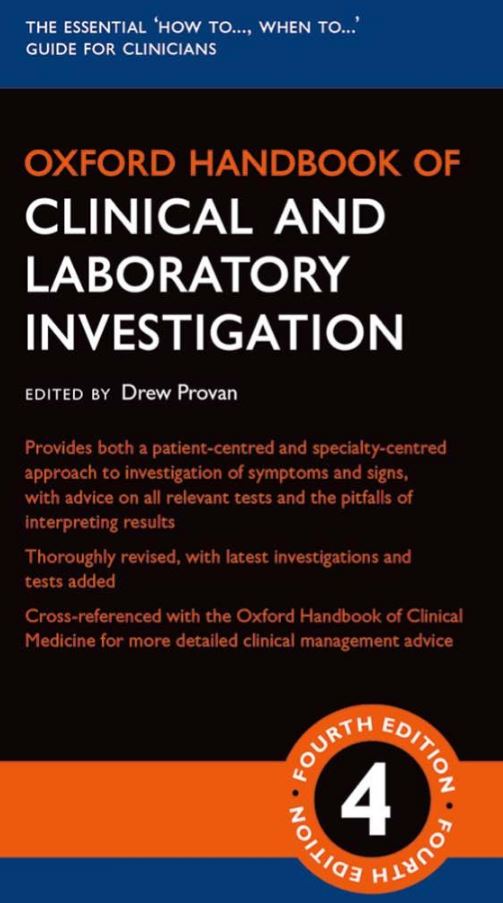Oxford Handbook of Clinical and Laboratory Investigation 4th Edition PDF Free Download

It is a fact of life that the sophisticated automated analysers in current use are not 100% accurate 100% of the time, but they come pretty close. In order to keep errors to a minimum, precautions need to be taken when sampling biological material, e.g. blood. Minimizing spurious results using blood samples • Use correct bottle. • Fill to line (if anticoagulant used). This is less of a worry when vacuum sample bottles are used since these should take in exactly the correct amount of blood, ensuring the correct blood:anticoagulant ratio. This is critical for coagulation tests. • Try to get the sample to the laboratory as quickly as possible. Blood samples left lying around on warm windowsills, or even overnight at room temperature, will produce bizarre results, e.g. crenated red blood cells (RBCs) and abnormal- looking white blood cells (WBCs) in old EDTA samples. • Try to avoid rupturing red cells when taking the sample (e.g. using narrow- gauge needle, prolonged time to collect whole sample); otherwise a ‘haemolysed’ sample will be received by the laboratory. This may cause spurious results for some parameters (e.g. [K+]). • Remember to mix (not shake) samples containing anticoagulant. Variations in normal ranges in health As discussed earlier, most of the normal ranges for blood parameters discussed in this book are for non- pregnant adults. The reason for this is that blood values, e.g. haemoglobin (Hb), red cell count (RCC), are high in the newborn and many full blood count (FBC), coagulation, and other parameters undergo changes in pregnancy.
